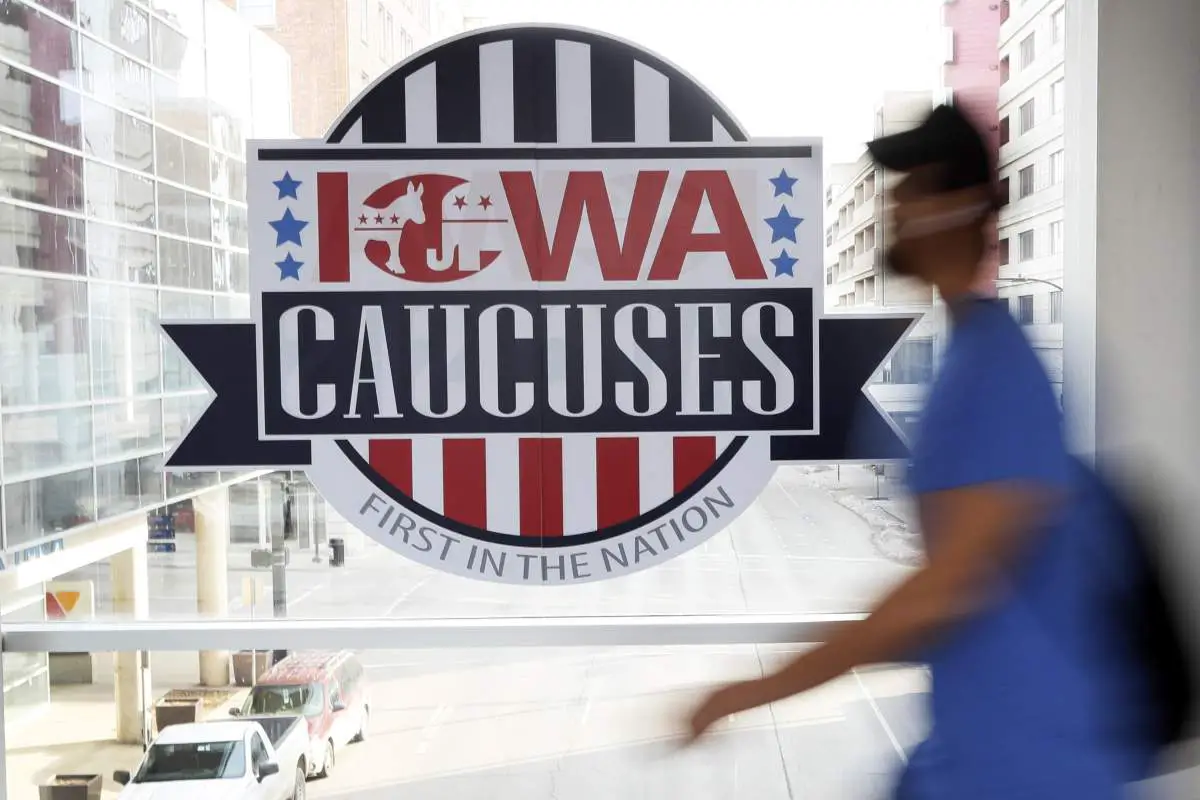While Republicans seem settled on leaving their primary schedule alone, leaving Iowa as the first-in-the-nation caucus state, Democrats are undergoing an internal civil war over how to rearrange their calendar based on racial demographics.
With the midterms now firmly in the rearview, political pundits and both major parties are looking ahead to their respective upcoming 2024 presidential primaries. Democrats have toyed with pushing Iowa and New Hampshire further down the line in favor of states like Nevada or Michigan, for example, but never actually made it official.
This time around, for 2024, it looks like a change might finally be coming:
New Hampshire’s Republican governor considers Nevada’s bid to become the first-in-the-nation presidential primary state a joke. Nevada’s top Democratic operative is warning against a big state like Michigan jumping to the front of the line. And South Carolina kingmaker James E. Clyburn (D) has signaled support for replacing Iowa.
But with just days left before Democrats gather on Dec. 1 to decide their presidential nominating order, it remains unclear just how the calendar will sort out. The most important voice in Democratic politics, that of President Biden, has yet to weigh in, and many members of the national party’s Rules and Bylaws Committee responsible for deciding the outcome continue to await word from the White House.
That has left an increasingly unruly void, with competing states sniping at each other in public and private, as they grapple for positions ahead of a decision that could ultimately reshape the petri dish from which Democratic presidents emerge.
Iowa is too white and too rural according to Democratic insiders to be deserving of the first-in-the-nation status any longer. New Hampshire has a similar demographic problem as well given that the state is 92% white. With racial identity politics now the single most important plank in the Democratic Party platform, this simply cannot be the case moving forward that a disproportionally whiter electorate, which propelled Barack Obama to the White House, deserves to hold any early clout on the primary calendar.
This doesn’t mean that Iowa or New Hampshire will take the fight lying down, however. As noted above, Gov. Chris Sununu, a Republican, has scoffed at attempts to wrestle away the first-in-the-nation primary status from his state by making light of the fact that Nevada is still counting votes from the midterm election back on Nov. 8:
“Nevada wants to go first? Can we all have a good laugh at that? They’re still counting fricking votes,” Sununu said in an interview one week after the midterm elections. “This isn’t something — ‘I get it because I want it,’ like a petulant child. You have to earn it with high voter turnout, transparency, results, quick access to winners and when you need to do a recount — we did four recounts yesterday — boom, done.”
He warned that if Democrats blackball the state’s primary, New Hampshire voters will remember in the general election, potentially putting at risk the state’s four electoral votes, which Biden won in 2020. “I think Democrats are doing themselves a horrible disservice by even trying to, you know, insinuate that we don’t do it right,” he said.
Threats aside, Democrats don’t need New Hampshire to win the presidency unless it’s an extremely tight race. Still, the primary fights in New Hampshire bleed into the surrounding New England states making the impact more sizable for candidate awareness and voter outreach.
One major issue Democrats now have with leaving New Hampshire near the front of the line is the state’s lack of early voting laws and lack of mail-in voting. Furthermore, the state’s voting laws also make it reportedly difficult for transient college students to vote, a core Democratic Party constituency.
A possible consensus calendar is starting to take shape which would put Nevada at the head of the line, followed by New Hampshire, South Carolina, and then the new addition of Michigan to the early states:
But House Majority Whip Clyburn, the dean of South Carolina Democrats and a close ally of Biden, said he would not oppose Michigan’s bid to enter the pre-window as long as it does not overshadow South Carolina and other Southern states that vote on Super Tuesday.
“If it’s Nevada, New Hampshire, South Carolina and Michigan, that’s almost ideal to me,” he said, though he cautioned that New Hampshire’s law could hinder efforts to put it behind Nevada. He said he was also open to New Hampshire and Nevada going on the same day, something Sununu has ruled out.
For Iowa Democrats, they’d be left on the outside looking in and relegated down the calendar to sometime in March, perhaps lumped in with Super Tuesday. As they say, Iowa picks corn, New Hampshire picks presidents. At least, that’s what New Hampshire residents say.
We will find out soon what Democrats will do to their 2024 primary calendar at an upcoming meeting where the issue will be hammered out definitively. Follow the 2024 primary schedule for updates when the final primary calendar for both parties is settled.
Donate Now to Support Election Central
- Help defend independent journalism
- Directly support this website and our efforts
